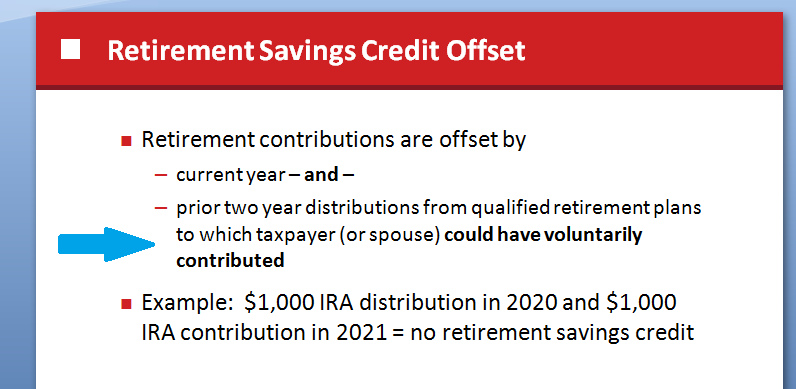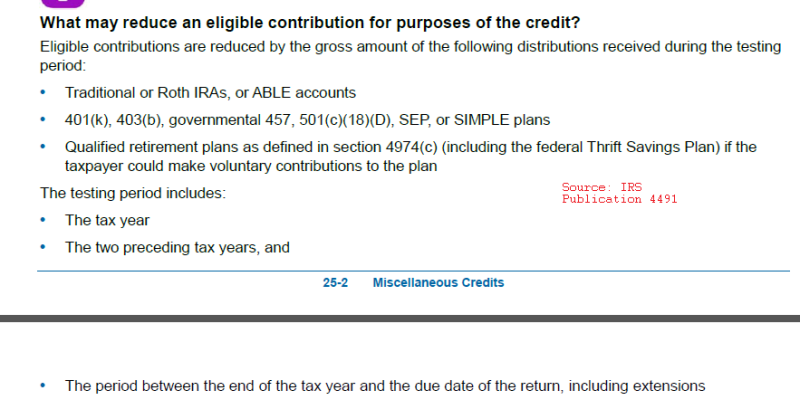pirsquared
Recycles dryer sheets
- Joined
- Jun 13, 2021
- Messages
- 129
I am trying to determine whether we qualify for the Saver's Credit (form 8880). My question relates to the section where you subtract any distributions from a retirement plan over the last few years. We have never made any withdrawals from our IRAs or 401Ks. However, DH is drawing a pension (approx. $900/month). This is a traditional defined benefit pension to which he did not and could not contribute. His company did have a separate option to contribute extra to a pension, but that was a separate thing in which he did not participate. The one he is drawing now is not something he did or could contribute to.
I have done some research and it appears that we would not need to subtract the DB pension $, but I am still not completely sure. Here are two bogleheads threads that seem to confirm that DH's pension $ are not subtracted from our contributions:
https://www.bogleheads.org/forum/viewtopic.php?t=185689
https://www.bogleheads.org/forum/viewtopic.php?t=211326
This IRS statement also seems to confirm my thoughts:
https://itap1.for.irs.gov/owda/0/re...s_Redirect_ITA/en-US/help/retcrexcldplan.html
However, this link says differently:
https://www.taxtopics.net/Sec4974c....RA, 401(k) and certain other retirement plans.
None of these links is very recent and I am wondering if anyone here has more recent experience with this issue.
Thanks!
I have done some research and it appears that we would not need to subtract the DB pension $, but I am still not completely sure. Here are two bogleheads threads that seem to confirm that DH's pension $ are not subtracted from our contributions:
https://www.bogleheads.org/forum/viewtopic.php?t=185689
https://www.bogleheads.org/forum/viewtopic.php?t=211326
This IRS statement also seems to confirm my thoughts:
https://itap1.for.irs.gov/owda/0/re...s_Redirect_ITA/en-US/help/retcrexcldplan.html
However, this link says differently:
https://www.taxtopics.net/Sec4974c....RA, 401(k) and certain other retirement plans.
None of these links is very recent and I am wondering if anyone here has more recent experience with this issue.
Thanks!


